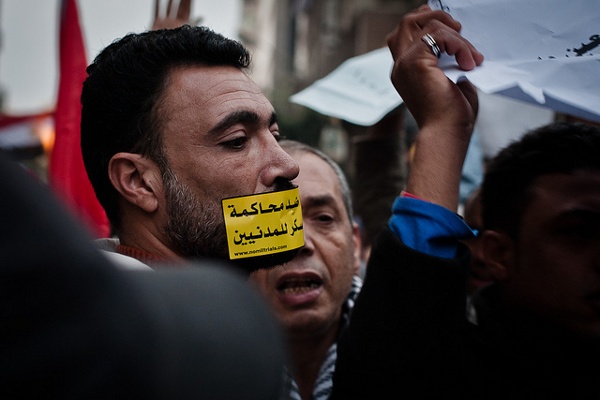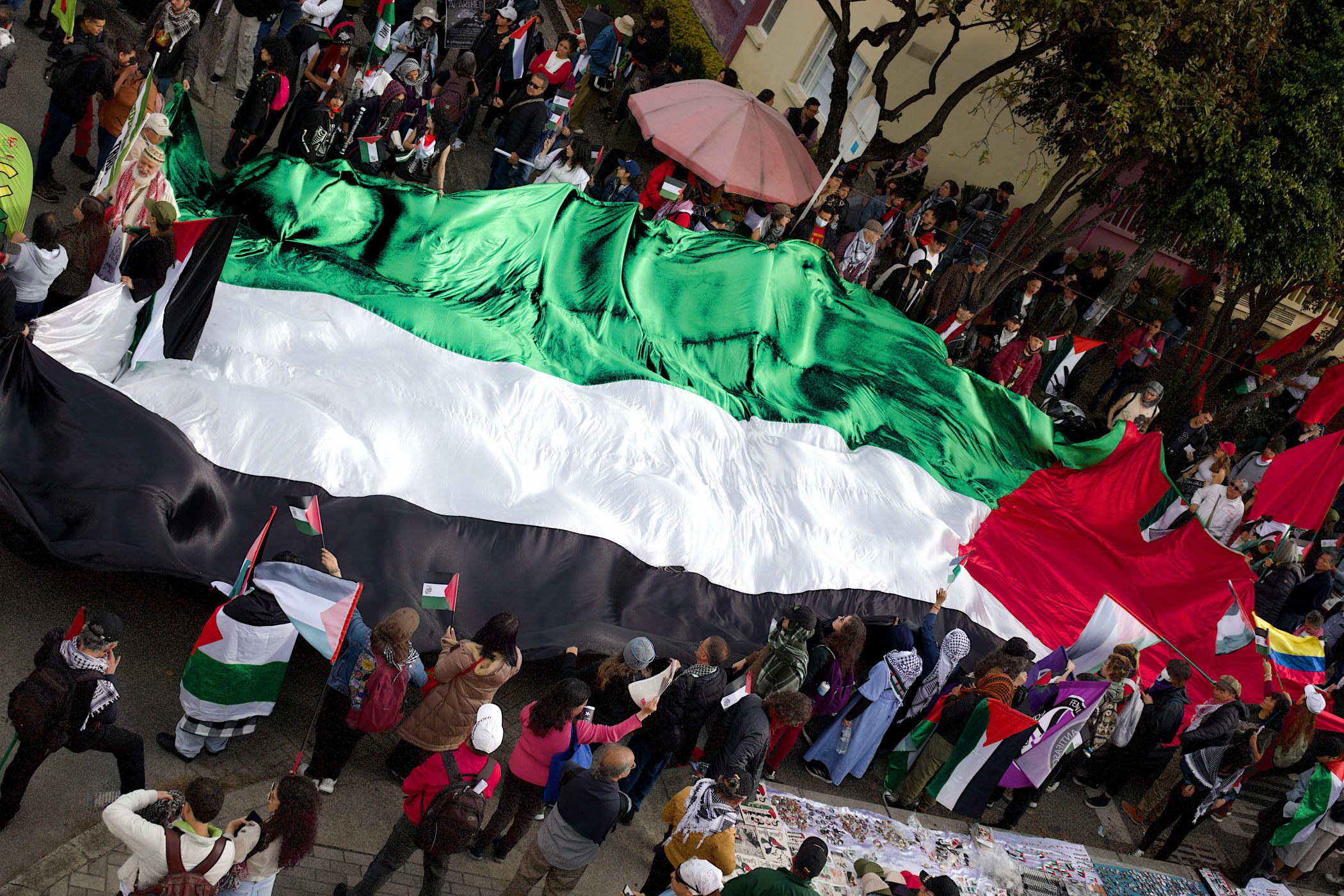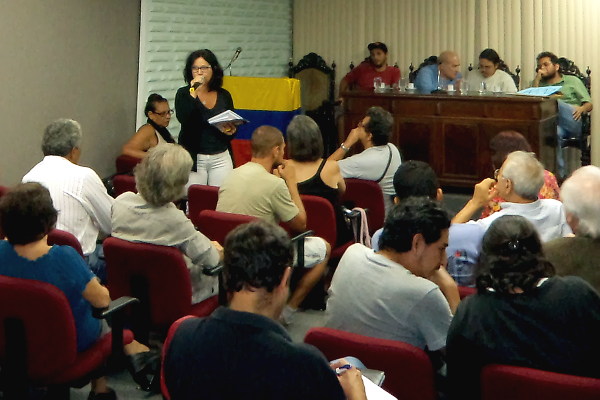 By: Mariam Metwally – September 17th 2012
By: Mariam Metwally – September 17th 2012
One year and seven months later, following the Egyptian uprising on January 25th 2011, Islam Afifi, Editor in Cheif of the Egyptian newspaper «El Dustour», has been ordered to remain in jail until his case’s first hearing on the 16th next month is held. Afifi has been charged of «Insulting the President» Mohamed Morsi with one of his controversial articles, harming the public interest and was band from exiting the country.
This court order led to a massive outraged dialogues and views expressed by a number of activists, intellectuals and individuals concerned about the condition of freedom of press and freedom of expression under Morsi’s ruling and whether that’s a major and a worth worrying setback for this country’s future. Interestingly, Afifi is not that popular of a journalist, a lot of those opposing his arrest are not big fans of Afifi’s writings and have very strong opinions regarding his integrity. However, the outrage and the controversy behind this came from a public concern of what the so-called revolution has accomplished so far.
Not so long ago, under the military rule –that’s supposedly now over after the last presidential elections–, Michael Nabil, an Egyptian blogger, was sentenced by a military court to three years imprisonment on charges of «insulting the military and dissemination of false news about the armed forces», but was set free following massive campaigns demanding his release. Michael, too, is one of the least popular bloggers in Egypt for having very strong views that labeled him as pros Israel, nevertheless, Michael became an icon of freedom of expression. Long before that, during Mubarak’s ruling, a long list of journalists, bloggers and activists were arrested, threatened and oppressed for standing for what is right or simply for daring to express their opinions regarding what was happening during Mubarak’s ruling.
As for the Egyptian people, as far as the freedom of press and expression are concerened, they are, on some level, willing to fight for transparent and truthful press and media specially that they have and still are suffering from the media’s lack of transparency and the way it’s affecting the public opinion.
On the other hand, whether or not the Egyptian people are ready for this kind of change is also questionable. A simple example is what Sondos Shabayek, the founder of the BuSsy Project «which presents performances of real-life monologues on women’s issues», has encountered when she and her crew went to perform one of the monologues in the metro. The amount of yelling, accusations and finger-pointing that they were submitted to for daring to bring up such taboo issues in public highlighted the dreadful idea of whether the people themselves are ready for such change. After all, you cannot pick and choose which topics or areas that can be addressed freely.
Despite the major political changes that may or may not have occurred following the Egyptian uprising, social and cultural changes have a long way to go for Egyptians. If a revolution was what overthrew Mubarak’s regime, then Egypt needs a double, definitely more challenging revolution for proper social and cultural transition to democracy and not only a revolution against a dictator in power, but also the dictator that was born inside many of us over the years.
Si encuentras un error, selecciónalo y presiona Shift + Enter o Haz clic aquí. para informarnos.



